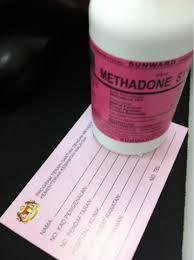Treating Lortab Addiction with Methadone
Lortab is a mixture of hydrocodone and acetaminophen that is prescribed to patients with acute pain such as is associated with back pain, toothache or pain following an injury or surgical procedure. Much like other opiates, Lortab can be used to effectively eradicate pain but it also carries a strong risk for physical dependence. Treating Lortab addiction often involves the use of Methadone or other replacement medications to reduce cravings and withdrawal symptoms so that the user can focus on counseling and therapy options.
Recognizing Lortab Addiction
According to the DEA, Lortab is a Schedule III controlled substance which has a very substantial risk for abuse and misuse. The impact that the drug has on the CNS can cause an array of long term side effects. Recognizing a Lortab addiction often involves the following signs:
- Running out of the drug before the scheduled prescription refill date.
- Using Lortab more often than it is prescribed or taking more than prescribed.
- Neglecting personal responsibilities as a result of using the drug.
- Increasingly taking more of the drug as a result of a built up tolerance.
Treating the Addiction

Methadone can be used to help with an addiction to Lortab.
Fortunately, once an addiction to Lortab has been discovered, there are a number of safe treatment options that can make recovery possible. Methadone, a medication that is commonly used in the treatment of opiate addictions, can be prescribed to a patient to help minimize the withdrawal symptoms and cravings associated with early Lortab withdrawal. While methadone is an opioid and it is dangerous if taken without proper guidelines followed by a doctor, it does have some serious benefits in the treatment of Lortab addiction. Methadone can help to:
- Reduce the risk that the individual will relapse and begin using Lortab again to control cravings.
- Reduce the risk that the individual will resort to the use of other dangerous opiates such as heroin in an effort to control withdrawal symptoms.
- Restore stability into the life of the user allowing him or her to function somewhat normally.
Additional treatment methods that do not include medication may involve things like:
- Teaching the patient coping mechanisms that will help him or her to reduce the likelihood of later Lortab use.
- Teaching the patient how to avoid relapse triggers or how to cope without the use of drugs.
- Providing the patient with access to social support such as NA.
- Providing the patient with access to counseling and therapy including CBT, motivational interviewing and other forms of treatment.
- Offering quality aftercare that helps to ensure continued success in recovery.








